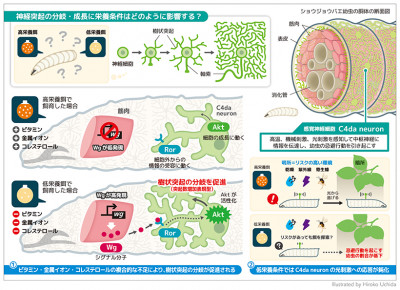父親が出産後数カ月間の共育関係が悪いと、子供が幼児の時にうつ状態になりやすいことが、スウェーデン・カロリンスカ研究所の研究者らによる新しい研究で明らかになった。この研究結果は、Journal of Affective Disorders誌に掲載されています。 Dads are more likely to feel depressed when their kids are toddlers if their coparenting relationships are poor in the months after birth, a new study by researchers at Karolinska Institutet in Sweden shows. The findings are published in the Journal of Affective Disorders.
2023-01-24 スウェーデン王国・カロリンスカ研究所(KI)
◆父親の約9~10%が産後うつを経験し、これは人口全体と比較して高い。また、先行研究によると、うつ病の父親のもとで育った子どもは、青年期に精神的、感情的、行動的な問題を抱えるリスクが高いことが分かっています。研究者は、父親のうつ病リスクを低減させる修正可能な要因を特定することで、親と子どもの両方の精神疾患を予防できる介入策を開発したいと考えています。
◆今回の研究では、スウェーデンで2歳までの乳幼児を持つ父親429人をFacebookで募集した。参加者は、うつ病の症状や共働きの関係性をランク付けするアンケートに回答するよう求められました。データは、子どもが平均8カ月、13カ月、26カ月になる3つの時点で収集されました。約20%の父親が、調査期間中のある時点で、うつ病の症状を訴えた。
◆調査結果によると、生後1年間の共育関係が特別に悪い父親の3分の2は、子どもが幼児になったときにうつ病の症状を持つ可能性が高いことがわかりました。逆に、共育スコアが高い父親は、うつ病の症状が少ない可能性が高い。また、より早い段階でのうつ病と、その後の共育関係の悪化との関連も見出されました。
◆スウェーデンでは現在、父親は生後3~5カ月、母親は生後6~8週間でうつ病の症状がないかスクリーニングを受けることになっています。研究者によると、効果的なうつ病の予防策は、追加のスクリーニングと共育関係についてのサポートで補完することである可能性があるとのことです。
◆この研究にはいくつかの限界があります。例えば、参加者は平均的なスウェーデン人よりも所得が高く、少なくとも軽度のうつ病の症状を有していた。研究者らは、この研究は父親と自認する人の経験しか調べていないため、結果が他の親に一般化するかどうかは不明であると指摘しています。
◆共育関係とは何ですか?
共育関係とは、親密な関係とは異なり、子どもを中心とした両親の協力関係に重点を置いた関係です。
通常、次の4つの領域が含まれます。1)子育ての方法に関する同意と不同意、2)相手の育児能力に対する支援と弱体化、3)家族の共同基準に関する協力、4)育児労働の分担。
◆この研究結果は、Journal of Affective Disorders誌に掲載されています。
<関連情報>
- https://news.ki.se/poor-coparenting-linked-to-depression-in-dads
- https://www.sciencedirect.com/science/article/pii/S0165032722014926
父親の産後うつ症状と共育の双方向的関連性。乳幼児の父親を対象としたクロスラグ・パネルモデルによる検討 Bidirectional associations between paternal postpartum depression symptoms and coparenting: A cross-lagged panel model of fathers of infants and toddlers
Michael B.Wells,Lieny Jeon,Olov Aronson
Journal of Affective Disorders Available online: 4 January 2023
DOI:https://doi.org/10.1016/j.jad.2022.12.128

Highlights
- •Finding modifiable factors to help reduce paternal postpartum depression benefits the whole family
- •Cross-lagged panel models showed bidirectional associations between paternal depression symptoms and coparenting
- •Fathers reporting low coparenting levels are at significantly higher risk of reporting depression symptoms (and vice versa)
- •Clinicians should support the coparenting relationship to decrease paternal depression in fathers of infants and toddlers
Abstract
Background
Finding modifiable predictors of paternal depression symptoms is helpful for developing interventions. The aim is to assess the unidirectional and/or bidirectional associations between paternal postpartum depression symptoms and coparenting among fathers of infants and toddlers.
Methods
Longitudinal data were collected prospectively from 429 fathers of infants aged 0–24 months (median = 8 months) in Sweden, with 6- and 18-month follow-ups. All fathers participated in at least two of three waves of data collection, and multiple imputation was used for missing values. The Edinburgh Postnatal Depression Scale was used to detect depression symptoms (≥10 points), while the Brief Coparenting Relationship Scale measured the coparenting relationship. A cross-lagged panel model was used to estimate the associations between paternal depression symptoms and coparenting relationship quality over time, controlling for several known covariates and COVID-19 exposure.
Results
Fathers with higher coparenting scores at Time 1 and 2 had less depression symptoms at Time 3, and fathers with more depression symptoms at Time 2 had lower coparenting scores at Time 3. Plotted probabilities of having at least mild depression symptoms revealed a multifold increase in the probability of depression symptoms at Time 3 for fathers with minimal coparenting scores at Times 1 and 2, respectively, compared to fathers with mean coparenting scores at Times 1 and 2, respectively.
Limitations
Causal links cannot be determined using the current non-experimental study design. Using the EPDS alone may have missed some fathers with depression symptoms.
Conclusions
Clinicians seeking to reduce paternal depression symptoms should help strengthen the coparenting relationship.


